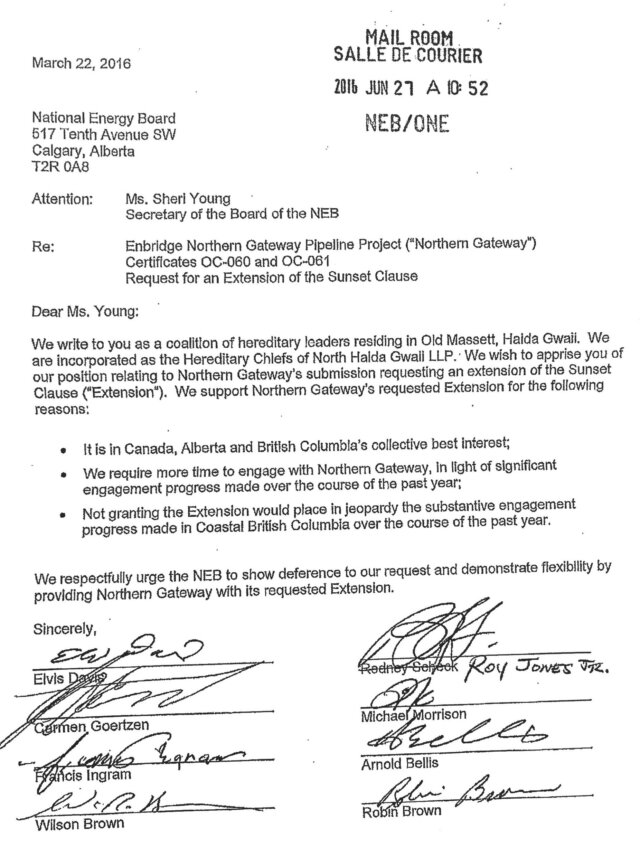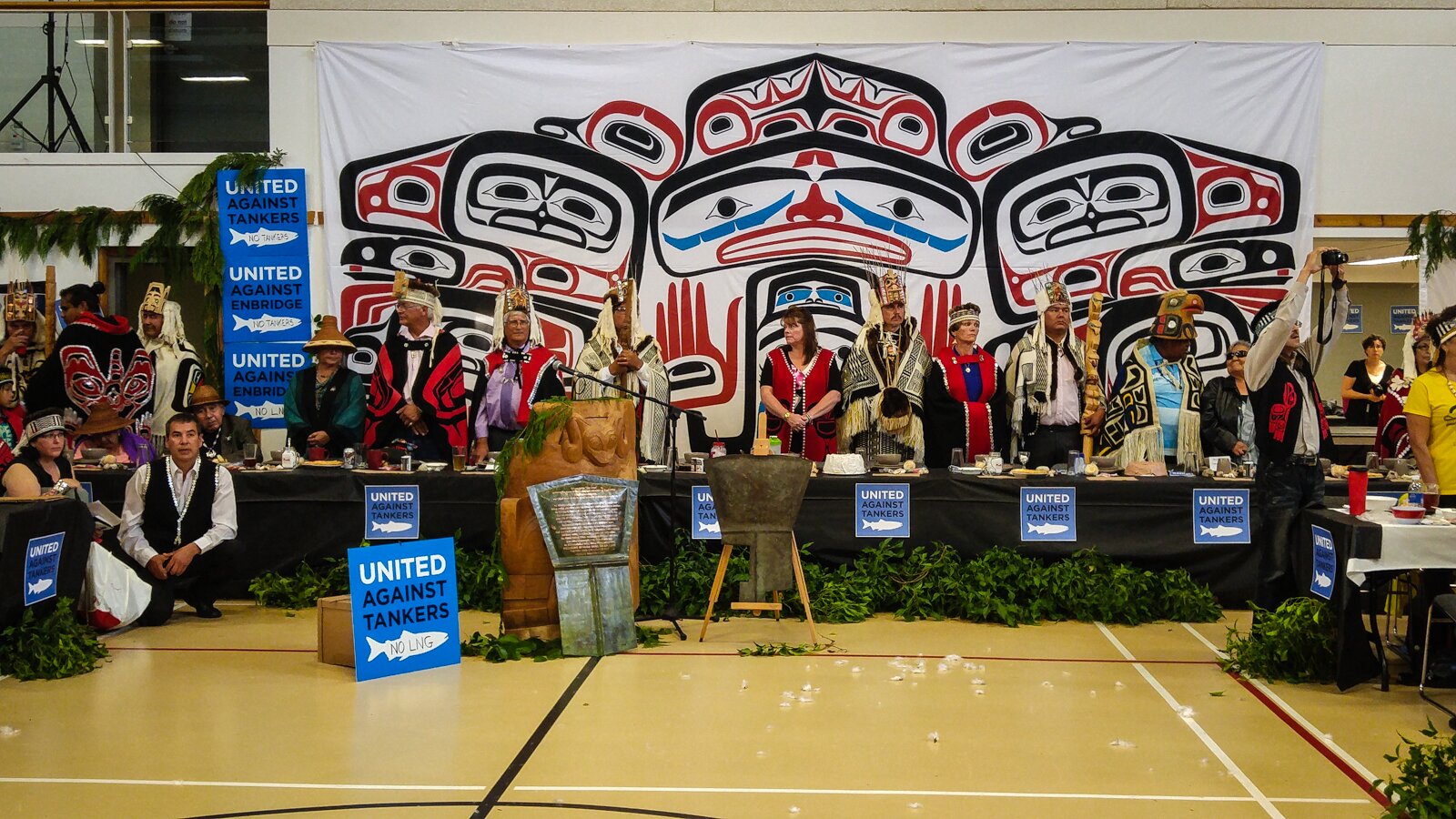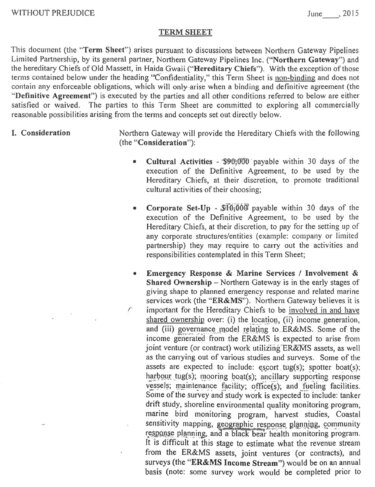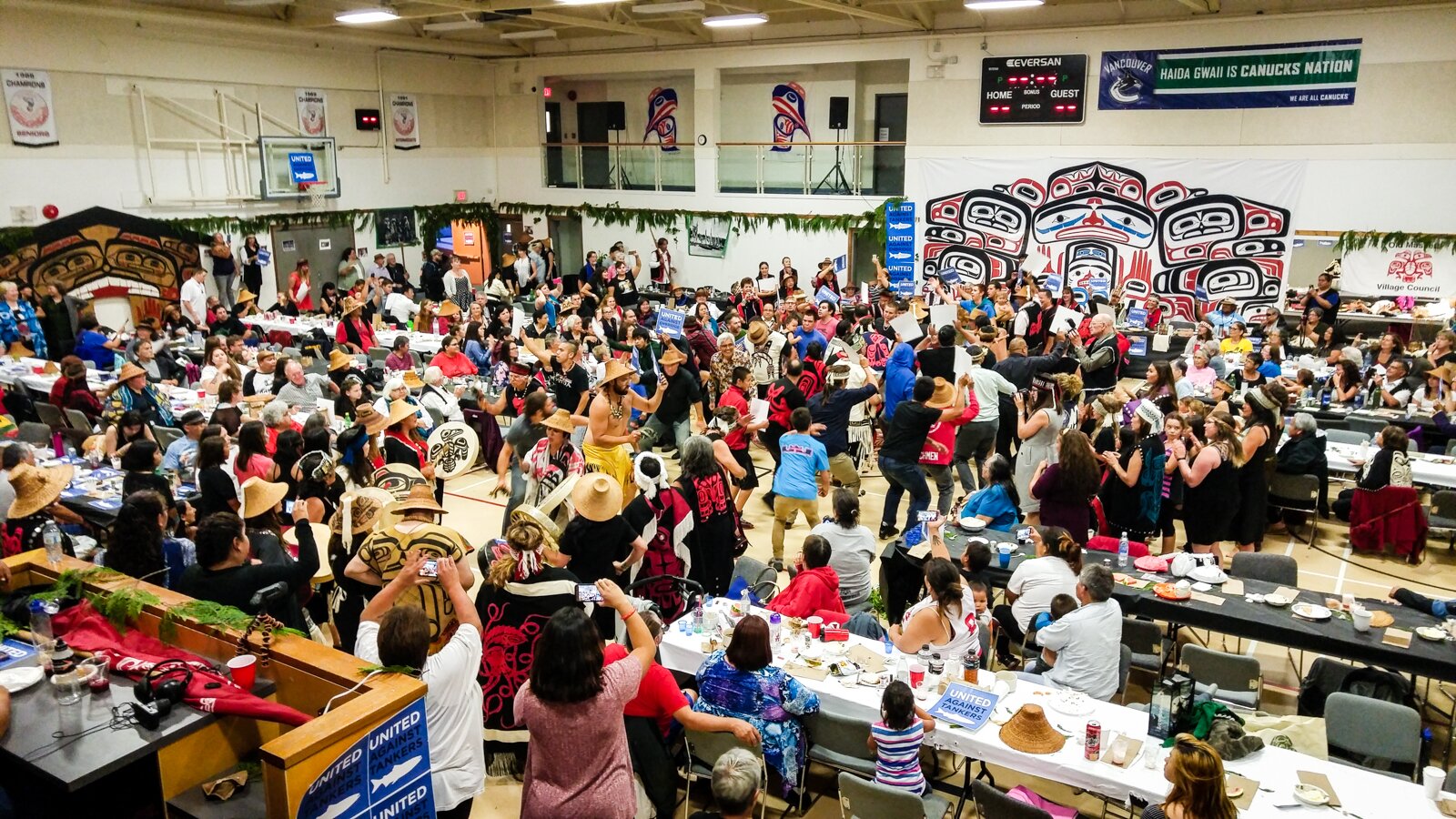Documents raise questions about negotiations between Enbridge and Haida hereditary chiefs
Two hereditary chiefs have lost their titles and the Haida Nation is divided over Enbridge’s Northern Gateway pipeline in the aftermath of a historic potlatch.

For generations, the Haida people have stood united against oil tanker traffic off the coast of northern British Columbia. But now, chiefs are suing chiefs, families are fighting families, and a trail of documents from the past year shows that Enbridge’s Northern Gateway pipeline project has found some support among Haida people eager to benefit from economic development.
"If they’re going to do it we should be involved to ensure they do it right."
“There’s literally a war going on in our community. A lot of people are hurting,” said one Haida hereditary chief who conditionally supports the project. He spoke to Discourse Media on the condition of anonymity due to fear of lateral violence and hostility against him and his family.
This chief says he’s opposed to the route but not the pipeline per se. “I’d sooner have a voice in it than not,” he says, adding that he wants sustainable economic development opportunities for young people on Haida Gwaii. “If they’re going to do it we should be involved to ensure they do it right.”
But that view is at odds with the stance of the Council of the Haida Nation, the national elected government on Haida Gwaii. They have adamantly opposed Northern Gateway’s proposal to construct a $6.5 billion pipeline that would transport crude oil from Alberta to a new marine terminal in Kitimat, B.C. From there, tankers would transport the oil through Haida waters en route to Asian markets.
On June 30, 2016, the Haida celebrated when the Federal Court of Appeal overruled the pipeline’s earlier approval, finding that the federal government failed to fully consult seven First Nations that would be impacted by the project.

Around the same time, the community learned that eight Haida men had secretly signed a letter to the National Energy Board (NEB) in support of Northern Gateway’s request for a permit extension. The letter was signed March 22, 2016, but it sparked outrage when the rest of the community learned about it in late June.
For one Haida clan, it was enough to hold an emergency potlatch and strip two of its hereditary chiefs of their titles. During the historic potlatch on Aug. 13, 2016, Darin Swanson, head chief of the Yahgu’laanaas/ Jaanas clan, announced that Francis Ingram and Carmen Goertzen, whose signatures are on the letter to the NEB, are no longer considered hereditary chiefs and can no longer speak on behalf of the clan. This is the first time in hundreds of years that the status of a Haida hereditary chief has been taken away.

Term sheet raises questions of unethical behaviour
But it’s not just the March 22 letter that has the Haida Nation concerned about the relationship between some of its members and the pipeline project. Discourse Media has obtained a “term sheet” offered to hereditary chiefs in the region. The unsigned documents state that “Northern Gateway Pipelines Limited Partnership, by its general partner, Northern Gateway Pipelines Inc.” would provide select hereditary chiefs in Old Massett, Haida Gwaii with benefits in exchange for written support of the project. This includes a $90,000 payment for “promoting cultural activities of their choosing.”
“It looks like it’s part of a ‘divide and conquer’ strategy on the part of Enbridge,” says Gordon Christie, director of UBC’s Indigenous Legal Studies program, after reading the documents. “It looks like they are very much into this game of trying to pick and choose people they can separate from the leadership itself and basically try to break the community up. It’s extremely unethical behaviour.”
Members of the group who signed the letter of support in March refer to themselves as the “Hereditary Chiefs of North Haida Gwaii LLP.” This company was registered in December 2015, six months after the term sheet was reportedly offered. And the second benefit listed in the term sheet? $10,000 for what the term sheet describes as the “corporate set-up” of a limited partnership by the hereditary chiefs.

The proposed benefits listed on the term sheet, in exchange for an agreement to support the project, would not kick in until a “definitive agreement” is reached between the two parties. There is no clear evidence that Ingram, Goertzen or any hereditary chief signed the document. However, Christie says there are signs that such a definitive agreement with Northern Gateway may have been reached in the past year.
“I assume there was some agreement that we are not aware of. The fact that this support letter was signed in March seems to indicate there was some arrangement between Enbridge and these individuals,” said Christie.
When asked how common these kinds of term sheets are and whether the company offered a term sheet to Haida members in this specific case, Northern Gateway communications manager Ivan Giesbrecht wrote in an email, “Northern Gateway believes that projects like ours should be built with First Nation and Métis environmental stewardship, ownership, support and shared control.”
“As part of building a trusting, respectful relationship, we will not publicly discuss the content of those conversations. We leave it to the communities and individuals themselves to determine if and how they wish to reveal these discussions with the media,” says Giesbrecht.

Chiefs deny taking money
Though Christie says it seems likely that a definitive agreement was reached between the Haida company and Northern Gateway, the chiefs involved deny accepting bribes in exchange for support of the project.
Two days before the potlatch, head chief Darin Swanson was sent an email from the McConchie Law Corporation accusing him of defaming both Goertzen and Ingram. The email says, “You have defamed each of my clients in clan meetings where you falsely accused them of lacking integrity, corruption, unethical conduct, and betraying the trust of citizens of the Haida Nation.” The email included a demand for a written apology and called on Swanson to cancel his plans to take away the two chiefs’ hereditary names.
"If whatever they’re doing is such a great idea, why is it done in such secrecy?"
Swanson said he wasn’t “going to let Canadian law stop Haida law” and proceeded with the potlatch regardless of the threat of legal action. “I’m anticipating it,” he said.
Neither Ingram nor Goertzen have responded to Discourse Media for comment, but in an interview with VICE, Goertzen said his clan members are “blowing stuff out of proportion.”
“That is why there have been many allegations made against us, and if they were true, we wouldn’t be litigating, right?” the Haida artist said.
Discourse Media reached out to all members of the Hereditary Chiefs of North Haida Gwaii LLP for comment. A representative from the company was not made available for comment.
While Goertzen and Ingram may still consider themselves hereditary chiefs, Swanson says the Yahgu’laanaas/ Jaanas are standing firm in their decision. “Maybe they thought it was for the better, but they should have at least consulted with their clan. If whatever they’re doing is such a great idea, why is it done in such secrecy?”
